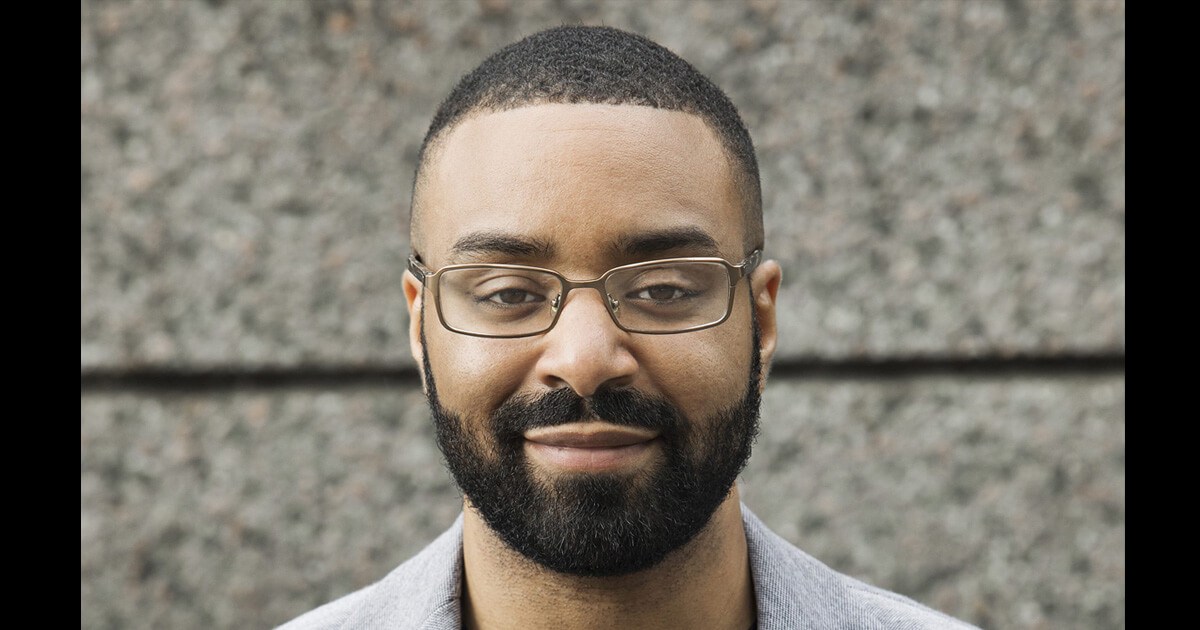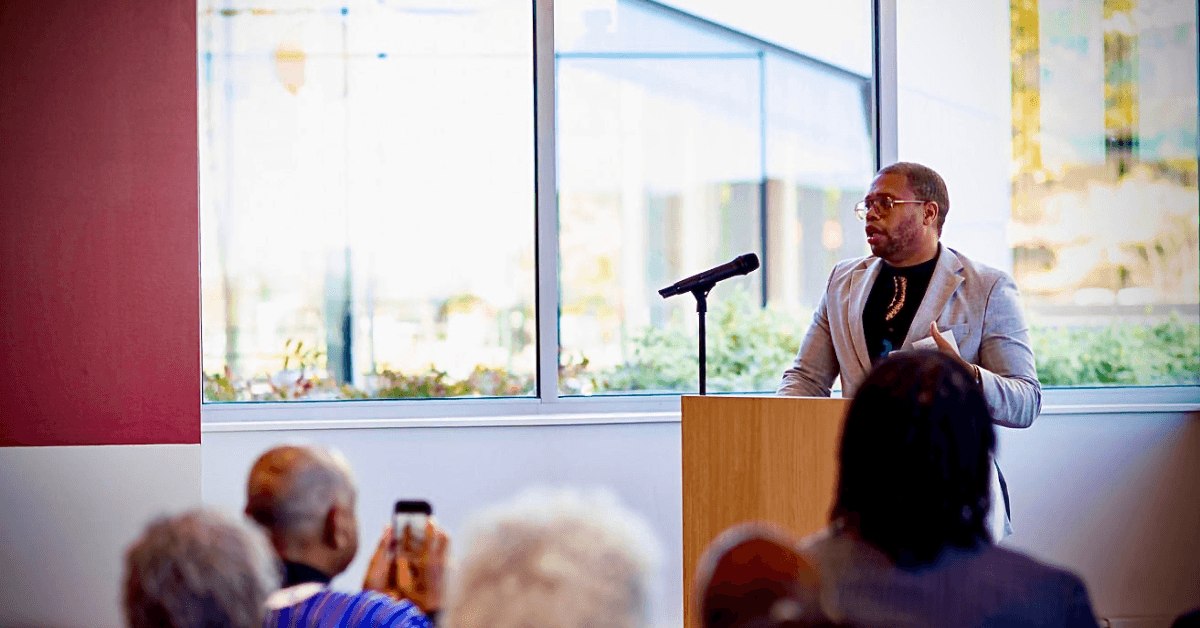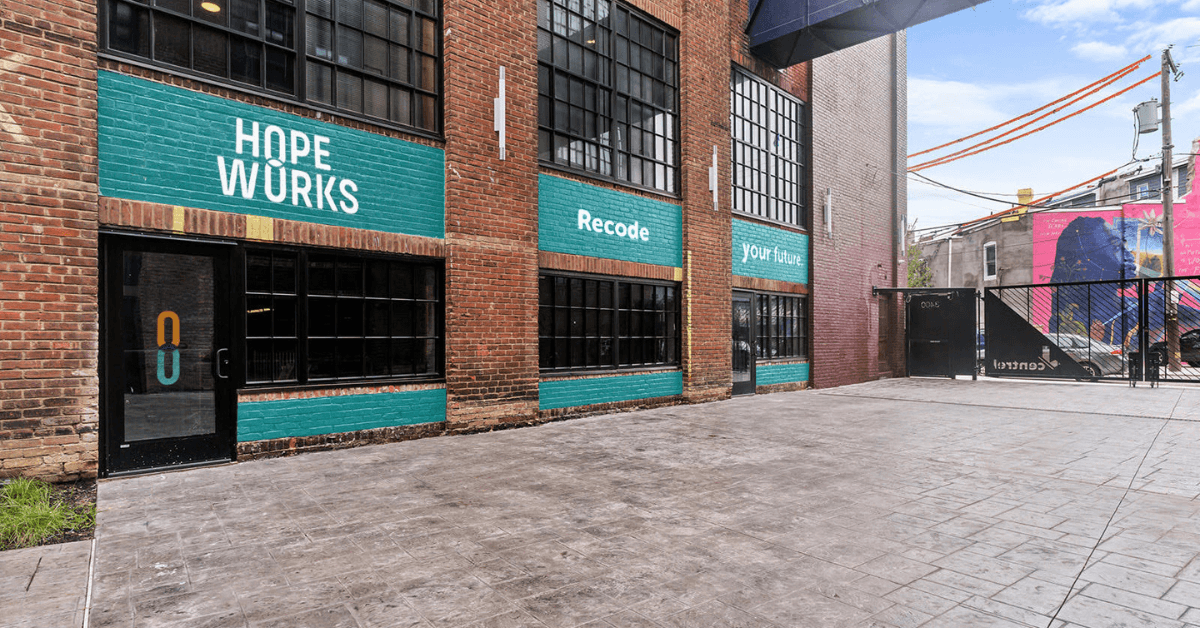As the coronavirus pandemic catapults society into a digital-first future, it lays bare racial, social, and economic disparities borne out of the historic exclusion of Black and Brown communities in the tech and innovation economies. One Philadelphia tech nonprofit’s latest initiative has big plans to fight such inequity, and with a recent round of funding, it just might succeed.
In 2014, Sylvester Mobley, a long-time innovator shaped by his own experiences as a Black male in a largely non-Black field, founded Coded by Kids in an effort to increase access to tech education opportunities for underrepresented communities, and particularly children of color. The organization quickly blossomed from a web development class at a recreation center to a program that teaches computer science, digital design, software development, and entrepreneurship to over 900 students across southeastern Pennsylvania, New Jersey, and Delaware. Now, Mobley has his sights set on a bigger vision: a citywide tech education pipeline for high-level tech talent among underrepresented communities called OnE Philadelphia, which launched in late October.
The initiative, for which partners Bank of America, Comcast NBCUniversal, and The Lenfest Foundation have invested almost $1 million, has three key strategies: building an integrated tech ecosystem that implements tech education, skill development, and experiential learning, shaping the infrastructure needed to support the ecosystem, and altering the way underrepresented communities in Philadelphia view tech and innovation in order to change the culture in the city.
“Everyone is trying to address inequity in silos, but it is systemic,” Mobley said. “We have the ability to bring entities together, break down the silos, break down the walls, and build this one long-term, deliberate system that can take someone from kindergarten up through higher education and adulthood. … OnE Philadelphia was us saying: ‘let’s focus on tech and innovation, and let’s focus on how we [can] move as many underrepresented people into the tech and innovation space as possible.’”
Research has consistently found that the U.S. tech and innovation sectors, in comparison to many other fields, are brimming with opportunities for socioeconomic mobility and economic growth. Just as noteworthy, however, are findings of widespread racial and gender disparities — disparities that Mobley and his team strive to eliminate.
According to research done by the consulting firm McKinsey, Black workers are underrepresented among software developers, while overrepresented in roles that are likely to be phased out by automation in coming years. In fact, McKinsey researchers concluded that by 2030, the employment outlook for Black workers — men, workers aged 18-35, and those without a college degree, in particular — may worsen significantly. The firm also reported that the percentage of women in computing roles (currently 26%) has declined over the past 25 years, and the situation is worse for women of color, who comprise just 4% of technical roles in tech companies, and 0% of CEOs of Fortune 500 tech companies. These trends are reflected in our country’s largest tech companies: Facebook, Google, and Adobe.
In Philadelphia, a similar trend is occurring. Results from Open Access Philly’s 2018 Diversity, Equity and Inclusion Benchmark Survey underscore that tech companies struggle with diversity among leadership and boards, and a “resource gap” is prevalent among diverse business owners. The city, which is the poorest big city in the country, also features one of the state’s and country’s worst public school districts for students of color due to the property tax structure the state uses to fund education. According to the Pennsylvania School Boards Association, only 38% of the costs of public education are paid for by the state of Pennsylvania, despite research showing that education funding positively influences student achievement. Consequently, individual school districts and local governments are forced to make up the difference with property taxes, which disproportionately harms children in poorer neighborhoods whose parents cannot afford the higher taxes necessary to compete with wealthier school districts.
“What we found was the data around inequity in the city of Philadelphia isn’t changing. But at the same time, there’s a significant amount of money and resources that are going toward addressing inequity,” Mobley said, articulating a societal problem in which several programs, such as Coded by Kids, are allocated sums of money to deal with short-term, ad hoc solutions. “One organization can’t address inequity, and you can’t address inequity through programs, because inequity is systemic. So you have to be able to identify system-level initiatives,” he emphasized.
Mobley also advocated for a proper balance between the public and private sectors.
“If the government ensured that we had effective policy … and that there was funding that could support things, and then the private sector also ensured that there was funding to support these things, we would be able to more effectively address some of the problems that we see,” he said. “But you can’t have the government saying, ‘oh, it’s not really up to us to fix it,’ and then corporations saying ‘it’s not really up to us to fix it.’”
Beyond the pandemic
Mjumbe Poe, a board member of Coded by Kids who has volunteered in the classroom and with constructing curriculum for the past several years, stressed the importance of OnE Philadelphia irrespective of the pandemic, noting that such disparities have always existed, and the need for more representation in the tech industry will always continue to exist.
“Of course the pandemic has exacerbated all sorts of issues around access,” he said, adding that the children in the Philadelphia School District are at a further disadvantage mid-pandemic than they would have been if their schools and teachers had a better sense of how to integrate technology into the classroom prior to the pandemic’s onset. “But access to opportunities for learning about technology in school and making sure teachers are prepared to teach about technology will go beyond this pandemic. Access to mentors in a technical, computing field will go beyond this pandemic. Access to internships and opportunities for actually getting hands-on experience will go beyond this pandemic.”
Evan Wilson, who was born and raised in Philadelphia and now is in his junior year at Penn, was first introduced to Coded by Kids as a high school student. Now, he works for the organization as its product lead.
“The picture for Black and Brown people in tech and startups is not pretty, and in Philly it’s largely reminiscent of the rest of the country, where venture capitalist money does not go to Black and Brown individuals, and especially not Black and Brown women,” he said. “Part of the reason why a lot of Black entrepreneurs and Black people trying to get access to capital are ruled out is because they don’t have that social capital that they need to unfortunately be accepted by venture capitalists, who have preconceived notions of who is a startup founder, and who is a person worthy of capital.”
Wilson said one of the biggest assets of Coded by Kids and similarly OnE Philadelphia, which he feels he himself has already benefited from, is having mentors sit on advisory boards so when young Black and Brown entrepreneurs pitch to investors, the advisors can assure venture capitalists that the entrepreneurs are worth investing in, despite whatever biases the venture capitalists might have.
Mobley also emphasized the initiative’s distinction between helping underrepresented, as opposed to underserved, communities — noting that in focusing on income, one often neglects race — as well as centering training around goals of leadership positions in tech, as opposed to simply attaining jobs.
“If we ‘fail,’ our kids become directors of engineering at tech companies and vice presidents of product, so we’ve still succeeded,” he explained. “If you set the bar at employment, and you fail, that’s a very different level of failure. So for us, the measure of success should not be employment — we should be going far beyond that.”
Staying true to OnE Philadelphia’s key strategies, Mobley’s future plans include implementing community engagement initiatives in order to change the culture surrounding, and increase engagement in, the tech and innovation economies in Philadelphia. Coded by Kids’ annual coding competition, for example, is transforming into a citywide, team-based league, wherein each neighborhood has its own innovation team and competes against other neighborhoods. For adults, the initiative’s focus centers around getting underrepresented founders into the tech innovation space, and building high-growth tech startups.
The most important thing, Mobley emphasized, is getting Philadelphia’s Black and Brown communities to realize just how many opportunities are available in the tech and innovation economies, and that with the right mentorship and resources, anything is possible.
Douglas Hayes, marketing coordinator for Coded by Kids and a junior at the University of Pennsylvania, echoed Mobley’s sentiment, and encouraged people within the Black community that have experience with tech and are interested in being a mentor, to step up and get involved.
“For anyone out there who has seen a lot of the same issues that we’ve seen and wants to fix them, come out and start supporting,” he said. “All of us can confidently say that we don’t want OnE Philadelphia to stop with Philadelphia; we want it to be something that inspires nonprofit organizations in other cities where inequality and inequity run rampant.”








